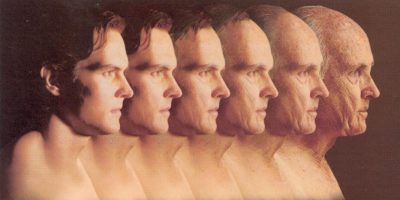Study could explain why even with healthy lifestyles some people die younger than others, and raises future possibility of extending the human lifespan
by Hannah Devlin
Scientists have found the most definitive evidence yet that some people are destined to age quicker and die younger than others – regardless of their lifestyle.
The findings could explain the seemingly random and unfair way that death is sometimes dealt out, and raise the intriguing future possibility of being able to extend the natural human lifespan.
“You get people who are vegan, sleep 10 hours a day, have a low-stress job, and still end up dying young,” said Steve Horvath, a biostatistician who led the research at the University of California, Los Angeles. “We’ve shown some people have a faster innate ageing rate.”
A higher biological age, regardless of actual age, was consistently linked to an earlier death, the study found. For the 5 percent of the population who age fastest, this translated to a roughly 50 percent greater than average risk of death at any age.
Intriguingly, the biological changes linked to ageing are potentially reversible, raising the prospect of future treatments that could arrest the ageing process and extend the human lifespan.
“The great hope is that we find anti-ageing interventions that would slow your innate ageing rate,” said Horvath. “This is an important milestone to realizing this dream.”
Horvath’s ageing “clock” relies on measuring subtle chemical changes, in which methyl compounds attach or detach from the genome without altering the underlying code of our DNA.
His team previously found that methyl levels at 353 specific sites on the genome rise and fall according to a very specific pattern as we age – and that the pattern is consistent across the population. The latest study, based on an analysis of blood samples from 13,000 people, showed that some people are propelled along life’s biological tramlines much quicker than others – regardless of lifestyle.
“We see people aged 20 who are fast agers and we look at them 20 years later and they are still fast agers,” said Horvath. “The big picture here is that this is an innate process.”
The scientists found that known health indicators, such as smoking, blood pressure and weight, were still more valuable in predicting life expectancy in the 2,700 participants who had died since the study began, but that their underlying aging rate also had a significant effect.
In a fictional example, the scientists compare two 60-year-old men, Peter, whose ageing rate ranks in the top 5 percent and Joe, whose rate is in the slowest 5 percent. If both are smokers and have stressful jobs, Peter is given a 75 percent chance of dying in the next 10 years compared to a 46 percent chance for Joe.
This is not the first time that scientists have observed so-called epigenetic changes to the genome with age, but previously these were put down to wear-and-tear brought about by environmental factors, rather than indicating the ticking of an internal biological clock.
Wolf Reik, a professor of epigenetics at the University of Cambridge who was not involved in the work, said: “It now looks like you get a clock given to you when you’re young. It gets wound up and the pace it’s ticking at is dictated by this epigenetic machinery.”
“I’m sure insurance companies are already quite interested in this kind of thing,” he added.
Horvath said he has no plans to market the test, which costs around $300 per sample in his lab, but admits he has run his own blood through the analysis.
“I’m currently 48 and the test indicated I was 5 years older, which I wasn’t too pleased about,” he said, but adds that for an individual factors like blood pressure and smoking were more decisive. “My innate ageing rate is too fast to become a centenarian, but otherwise I’m not too worried about it.”
The study, published in the journal Aging, suggests that accelerated ageing rather than simply a riskier lifestyle could explain why men die younger. Even by the age of five, Horvath said, the different speeds of aging between genders was apparent and by the age of 40 a biological age gap of 1-2 years opens up. “Women always age a little bit more slowly than men,” he said. “It’s not lifestyle it’s this innate ageing process that favors women.”



